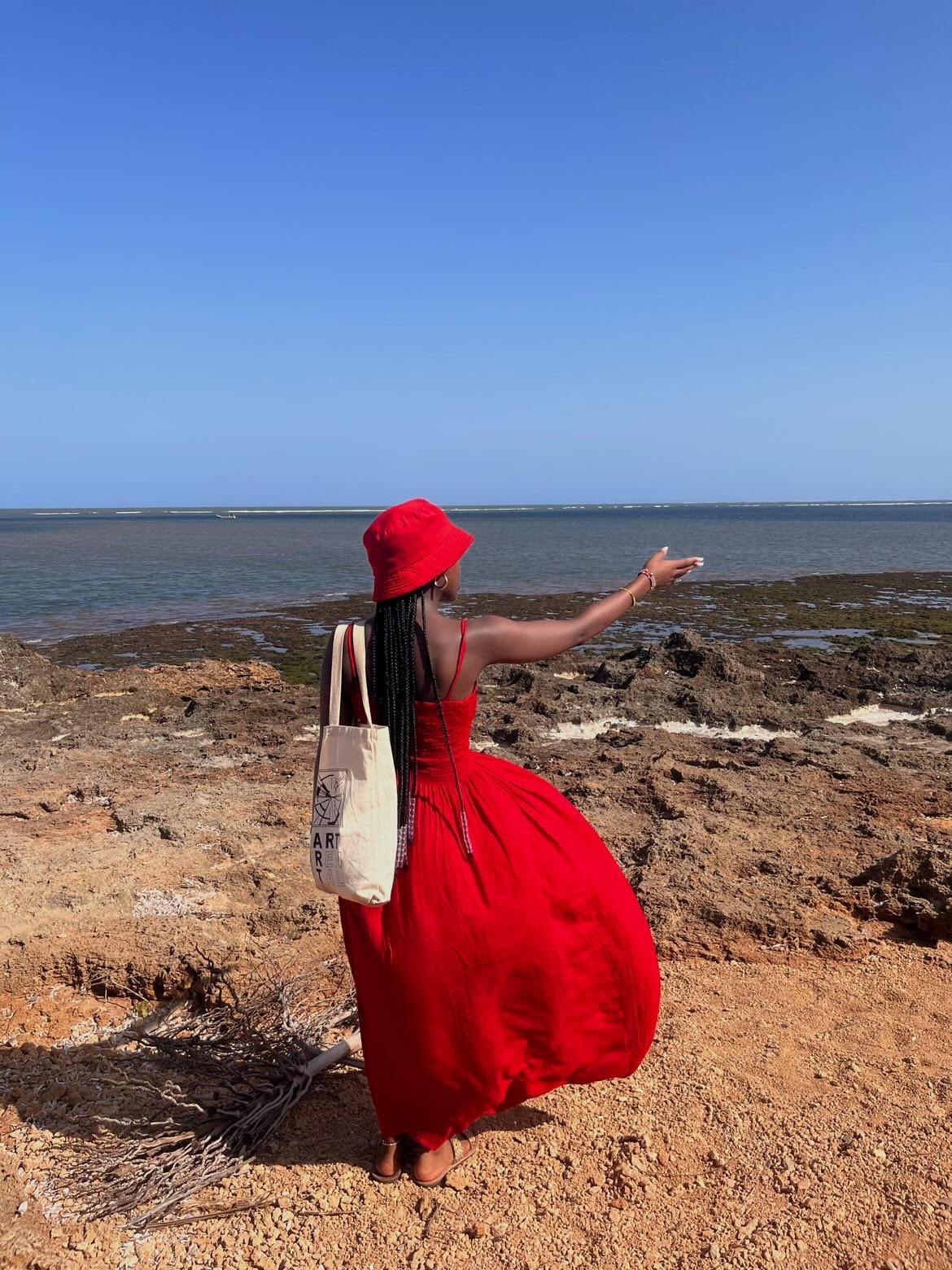
6 minute read
As an International Student, Why Should I Care About the Overturning of Roe V Wade?
from BIPOC Lenses Issue 1
by bipoclenses
Chemutai Ruto AS an international student who is in America temporarily, why should I care about the overturning of Roe v Wade? Well, this uterus is international— it’s affected both here and in
Kenya, my home-country. I came here for educational and professional opportunities with the intent of one day returning to Kenya, therefore, as a non-immigrant I am, understandably, apprehensive to share my opinion on this “landmark decision” about which I previously knew very little. My positionality as a Kenyan international student makes me feel as though this is not my fight. Don’t get me wrong, I do support the fight for abortion access, reproductive rights and gender affirming care – everyone deserves the right to bodily autonomy. A denial of this crucial access to healthcare is a great injustice. However, I would be a hypocrite to be invested in US abortion rights while ignoring the reality of the same in my home country. Abortion remains illegal in Kenya, despite ongoing attempts to legalize the procedure. Furthermore,
Advertisement
Chemutai Ruto Class of 2025
Gender Affirming Care remains inaccessible due to a lack of legal gender, recognition for trans or non-binary people, coupled with antiquated anti-LGBTQIA laws. Hence, I must conserve the amount of energy I pour into these complex issues in America— to have enough for Kenyan affairs. International students often pour hearts into the battles of others only to look around and very few people willing to fight with us in our own battles. Unfortunately, America’s cultural and political hegemony over the world enables its affairs to be centered and shadow other affairs in the world. This is because, what happens in America affects the rest of the world. As a non-American, whether you like it or not, you must keep up with what happens in here. For example: in 2017 President Trump reinstated the “global gag rule” that took away US government funding from international NGOs that provide access to or information about abortions.Such NGOs are crucial in countries like Kenya that have
restrictive abortion laws. This is just but a minor example of how your country’s politics/affairs affect the other side of the world— quite possibly, the overturning of Roe V Wade will too. In Ohio, the six-week ban is in effect. Therefore, if you need an abortion past this time frame, chances are you’ll have to travel out of state. This is a huge barrier if you are not in a financial position to do so. Put this into perspective: the closest states are Illinois, Maryland, Delaware, New Jersey, or New York. You would have to account for travel costs, accommodation, and the abortion itself which ranges from $650 to $3000 depending on your insurance and the trimester (Guttmacher Institute). I don’t know about you but, to me, that is a lot of money. If you can’t disclose the fact that you need abortion money to your parents or guardians (if they support you financially), and you don’t have other avenues to raise that money— you would have to cough it up yourself or opt out of an abortion. Not very accessible, is it? There is the option of having an abortion pill mailed but this runs many risks of legality, prosecution of the healthcare worker that prescribed it and is about $550 according to the University of California San Francisco. Abortions have always been expensive, but with these added barriers the cost now includes gambling with the law. In Kenya, abortion is banned but there are exceptions if “ ...in the opinion of a trained health professional, there is need for emergency treatment, or the life or health of the mother is in danger, or if permitted by any other written law” (Article 26.4 of Kenya’s 2010 constitution). Many Kenyan academics, doctors and judges argue that this law is vague for healthcare and workers are confused on when they can and cannot be prosecuted for performing an abortion. For example, in March 2022, Judge Reuben Nyakundi made the ruling that “access to safe abortion services is a human right” in a case concerning the wrongful arrest of a miscarrying 16-year old girl and the healthcare worker that provided the abortion. Judge Nyakundi affirmed that:
"There were an estimated 464,690 and “Inaccessibility induced of quality abortion abortions care risks violating occurred in a range of human Kenya in 2012" rights of women and -The Guttmacher girls (of course trans men and
Institute nonbinary people are at risk) including the right to life. ”
This challenged conservative writers of the 2010 constitution who had the opportunity to make the constitution as inclusive as possible. Considering it was written in recent and more progressive times it is a shame that abortion remained illegal and even after the bill of rights was updated it still argued that “The life of a person begins at conception” when there is plenty of research arguing against this (The
Bill of Rights, Rights and Fundamental Freedoms). This alludes to Kenya’s majority conservative beliefs 8
and points to the long road ahead in fully legalizing abortion. This same clause argues that “Every person has the right to life. ”
However, restrictive abortion laws subject many to unsafe abortions that result in an average of 7 deaths a day— 2,600 women and girls annually (Centre for Reproductive Care 2012 report). What about these women’s and girl’s right to life? Another contributor to the rise of maternal mortality rates is the costly treatment for unsafe abortions considering “2 in 5 people live on less than $2 a day” (International Federation of Gynecology and
Obstetrics). Clearly, the legalization of abortions would greatly reduce the number of people dying from unsafe abortions
From this, I hope you can see that abortion remains a complex issue around the world, not solely in the United States. Specifically in Kenya, the procedure remains embroiled in legal, cultural, and religious battles. Furthermore, while progress continues to be made, it is often slow and sometimes inconclusive. Progress was made when the 2010 Kenyan constitution went on to broaden access to abortion by including one’s health and situations of rape as exceptions to the ban, but more could be done. What could be said is that while many countries such as Kenya, are making slow but steady progress in this realm— since 2000, thirty-seven countries have increased the legal grounds on which abortions can be provided, the United
States seems to be regressing (Council on Foreign Relations). This is unfortunate since the United States was one of the first countries to liberally legalize abortions almost half a century ago. As an international student, I can’t only focus my energy on the U.S but as for now, I remain firmly tuned into both conversations because,
“The truth is, no one of us can be free until everybody is free” - Maya Angelou.








